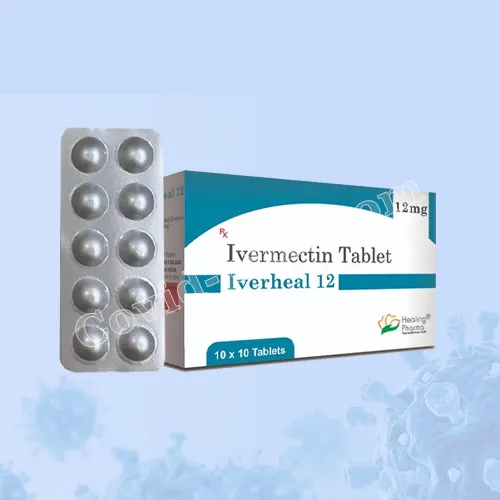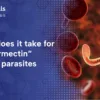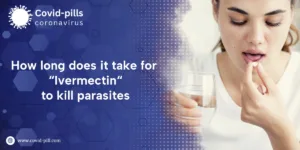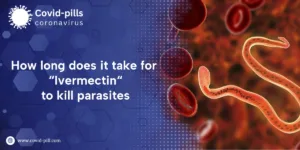What is Ivermectin?
Ivermectin is an antiparasitic drug classified under the group of medicines known as anthelmintics. It was discovered in the late 1970s and introduced for human use in the early 1980s. Since then, it has become an essential treatment for many parasitic infections that affect millions worldwide.
The U.S. Food and Drug Administration (FDA) has approved ivermectin for specific parasitic diseases in humans, and the World Health Organization (WHO) includes it on its list of essential medicines.
Ivermectin is available in several forms:
-
Oral tablets (commonly prescribed for parasitic infections)
-
Topical lotions or creams (for skin infestations like scabies and lice)
-
Veterinary formulations (for livestock and pets – not for human use)
How Does Ivermectin Work?
The action of ivermectin is unique. It targets the nervous system of parasites, binding to proteins known as glutamate-gated chloride ion channels.
This process results in:
-
Paralysis of parasites – they cannot move or reproduce.
-
Death of parasites – due to inability to feed or survive.
-
Natural elimination – parasites are expelled from the human body.
Because of this mechanism, ivermectin is highly effective against worms, mites, and lice, while being relatively safe for human cells.
Approved Medical Uses of Ivermectin
Ivermectin has multiple medical applications in humans. Some of its most important uses include:
1. Onchocerciasis (River Blindness)
-
Caused by the worm Onchocerca volvulus transmitted through blackfly bites.
-
Symptoms include severe itching, skin rashes, and in advanced stages, blindness.
-
Ivermectins is the standard treatment to reduce immature worms and prevent blindness.
2. Strongyloidiasis
-
An intestinal infection caused by Strongyloides stercoralis.
-
Can cause diarrhea, abdominal pain, and in severe cases, life-threatening complications.
-
Ivermectin is highly effective in treating this infection.
3. Scabies (Mite Infestation)
-
Caused by mites that burrow into the skin.
-
Leads to intense itching, rashes, and skin irritation.
-
Oral ivermectins or topical creams cure scabies effectively.
4. Head Lice
-
A common problem, especially in children.
-
Ivermectin lotions or tablets eliminate lice and prevent re-infestation.
5. Other Parasitic Worm Infections
-
In certain cases, ivermectin is also used against intestinal worms and roundworms.

Buy Ivermectin 12 Mg
Ivermectin and COVID-19: The Debate
During the COVID-19 pandemic, ivermectin became widely discussed as a possible treatment for coronavirus. Some small studies suggested potential benefits, but larger trials and scientific reviews did not confirm these results.
-
WHO, FDA, and CDC have all stated that ivermectin should not be used for COVID-19 treatment outside of clinical trials.
-
Currently, there is no strong scientific evidence that proves ivermectin is effective against COVID-19.
Thus, ivermectins remains approved only for parasitic infections, not for viral diseases like COVID-19.
Possible Side Effects of Ivermectin
Like any medicine, ivermectin can cause side effects. Most are mild, but in rare cases, serious reactions may occur.
Common Side Effects:
-
Nausea
-
Dizziness
-
Headache
-
Stomach discomfort
-
Skin rash or itching
Rare but Serious Side Effects:
-
Allergic reactions (swelling, breathing difficulty)
-
Liver problems
-
Severe skin reactions
👉 Always consult a doctor if you experience unusual or severe side effects.
Safety Guidelines and Precautions
To use ivermectins safely, follow these precautions:
-
Take ivermectins only when prescribed by a licensed doctor.
-
Pregnant or breastfeeding women should avoid it unless approved by a physician.
-
People with liver, kidney, or neurological disorders should use it cautiously.
-
Avoid mixing ivermectins with other medications without medical advice.
-
Do not self-medicate or buy unverified versions of ivermectins online.
FAQs About Ivermectin
Q1: What is ivermectins mainly used for?
👉 Ivermectins treats parasitic infections such as river blindness, scabies, and strongyloidiasis.
Q2: Is ivermectins effective for COVID-19?
👉 No, there is no strong evidence supporting ivermectins as a COVID-19 treatment.
Q3: Is ivermectins safe to use?
👉 Yes, when prescribed by a healthcare professional for approved conditions.
Q4: Does ivermectins have side effects?
👉 Most side effects are mild (nausea, dizziness), but serious ones are rare.
Q5: Is ivermectins available over the counter?
👉 In most countries, ivermectins requires a doctor’s prescription.
Conclusion
Ivermectin is a powerful antiparasitic medication that has transformed the treatment of infections like river blindness, scabies, and strongyloidiasis. While it became controversial during the COVID-19 pandemic, global health authorities agree that it should only be used for approved medical purposes under proper supervision.
If you ever wonder “What is ivermectins and should I take it?” — the answer is simple: it is a trusted medicine for parasitic infections, but it should only be taken under medical guidance.






Add comment